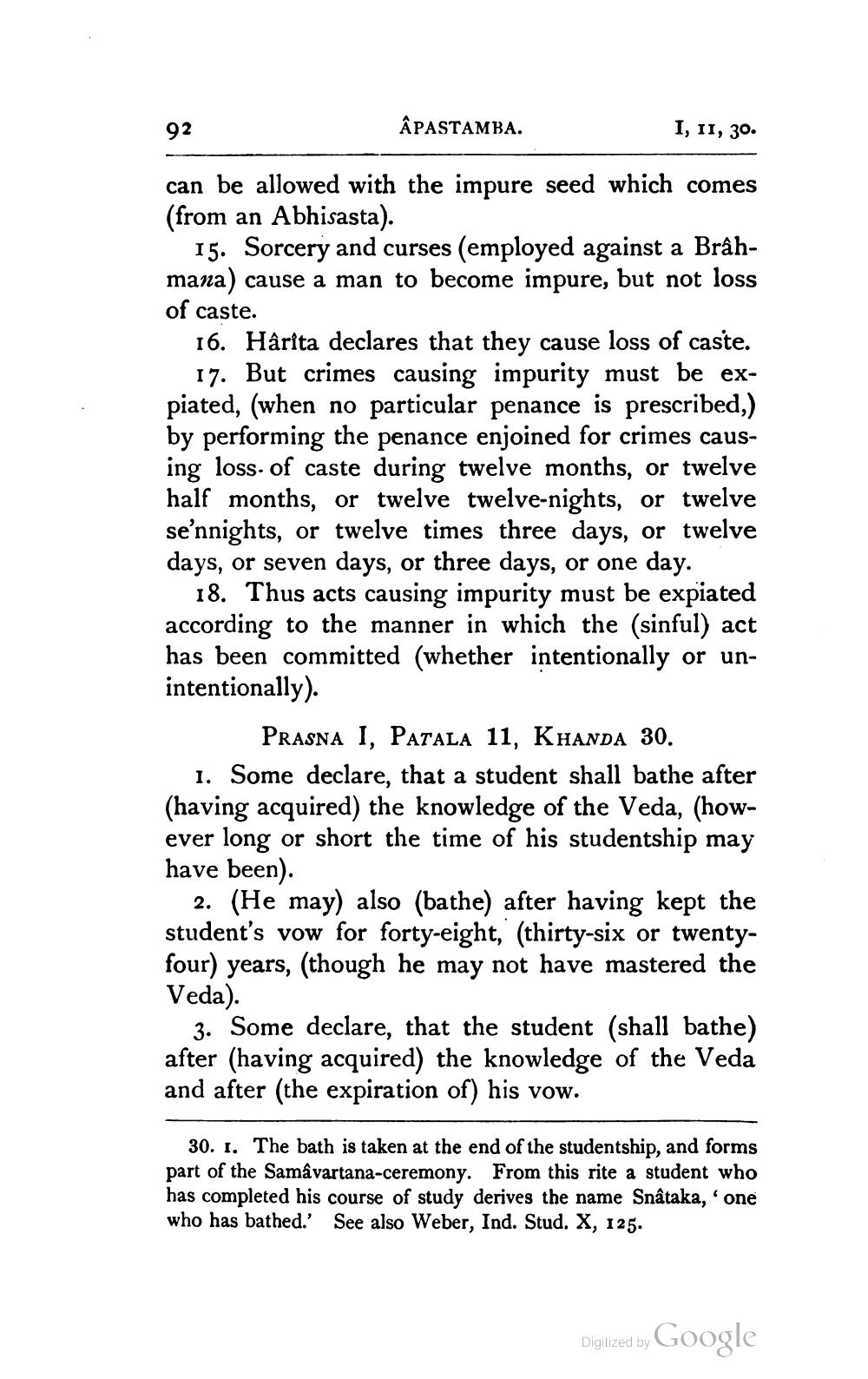________________
92
ÂPASTAMBA.
I, II, 30.
can be allowed with the impure seed which comes (from an Abhisasta).
15. Sorcery and curses (employed against a Brâhmana) cause a man to become impure, but not loss of caste.
16. Hârita declares that they cause loss of caste.
17. But crimes causing impurity must be expiated, (when no particular penance is prescribed,) by performing the penance enjoined for crimes causing loss of caste during twelve months, or twelve half months, or twelve twelve-nights, or twelve se'nnights, or twelve times three days, or twelve days, or seven days, or three days, or one day.
18. Thus acts causing impurity must be expiated according to the manner in which the (sinful) act has been committed (whether intentionally or unintentionally).
Prasna I, Patala 11, KHANDA 30. 1. Some declare, that a student shall bathe after (having acquired) the knowledge of the Veda, (however long or short the time of his studentship may have been).
2. (He may) also (bathe) after having kept the student's vow for forty-eight, (thirty-six or twentyfour) years, (though he may not have mastered the Veda).
3. Some declare, that the student (shall bathe) after (having acquired) the knowledge of the Veda and after (the expiration of) his vow.
30. 1. The bath is taken at the end of the studentship, and forms part of the Samâvartana-ceremony. From this rite a student who has completed his course of study derives the name Snataka, one who has bathed.' See also Weber, Ind. Stud. X, 125.
Digjized by Google




